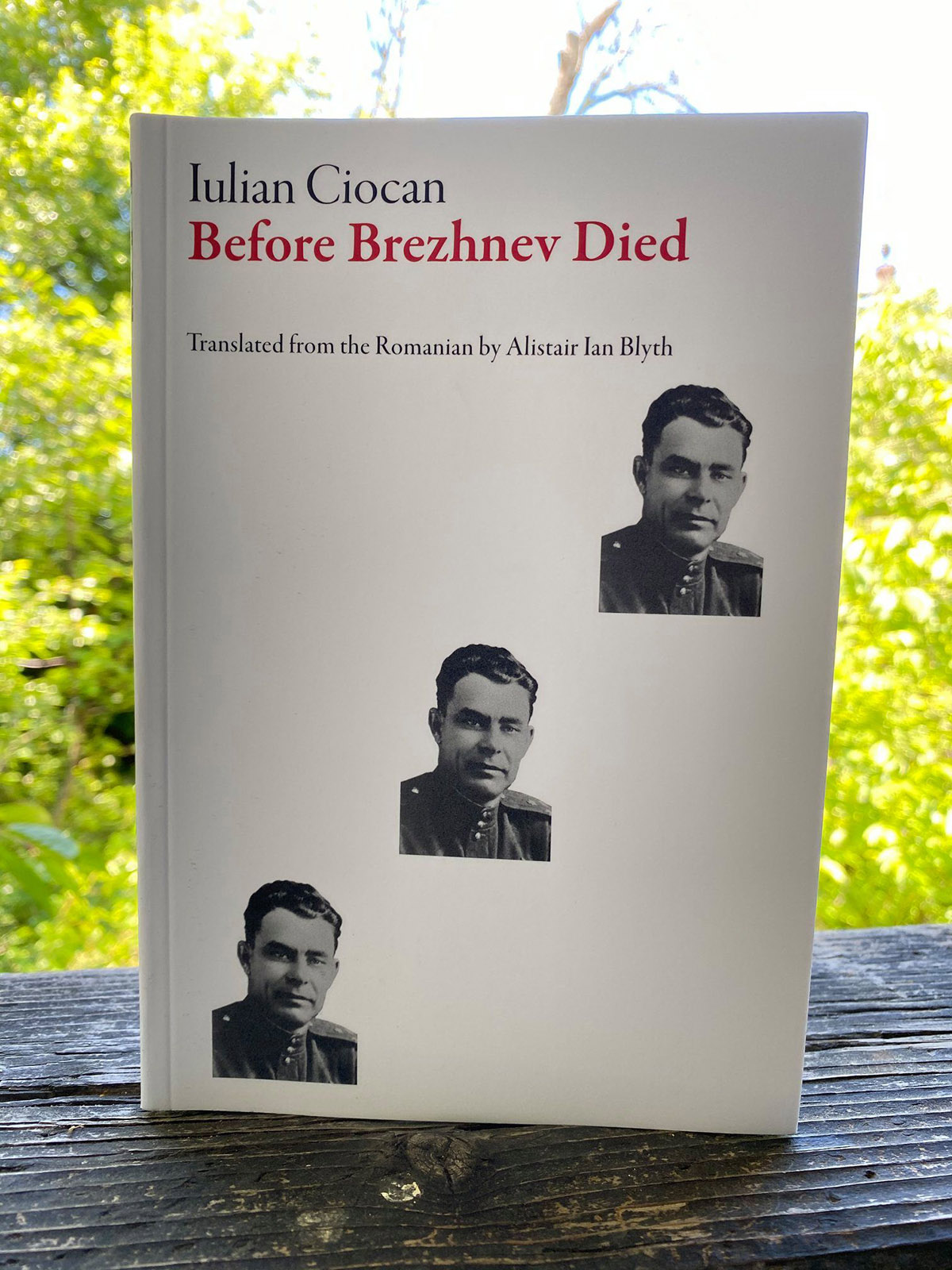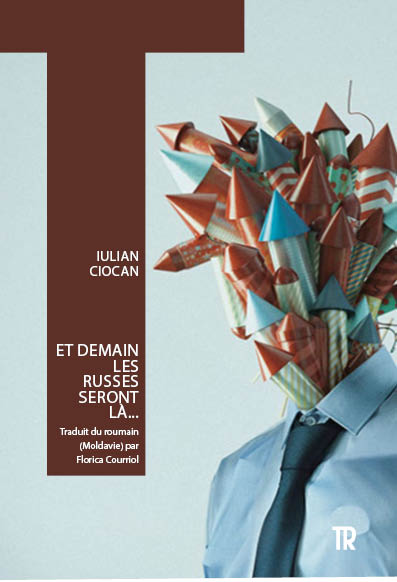A novelist, cultural critic and radio show host for more than a decade, Iulian Ciocan has long been a prominent public figure in Moldova. But more recently the writer has been on the ascent across Europe, with his five novels currently available to read in 10 European languages. His prose riffing on Russia’s military-driven expansionist ambitions began to garner international recognition after the annexation of Crimea in 2014.
Now, after Russia’s full-scale invasion of Ukraine and the spectre of war looming large in his home country, Ciocan’s dystopic novels are striking a chord among anxious Moldovans. They are also gaining further traction across the continent, which has its eyes newly trained on the small nation across Ukraine’s southern border.
The Parliament sat down for an interview with the 54-year-old Ciocan at a café near his house in Buiucani. The neighbourhood in western Chișinău serves as a rich source of inspiration for his characters, he says, as well as a backdrop for some of his novels
Our conversation begins by revisiting In the Morning the Russians Will Arrive, which Ciocan started writing in 2012 and eventually published in 2015, not long after Russia annexed Crimea in March 2014.
Set in the year 2020, the novel imagines a Russian invasion of Moldova by way of Transnistria, the pro-Russian separatist region situated along Moldova’s eastern border with Ukraine. The plot reflects a very real fear experienced by many Moldovans since the outbreak of the war.
“I speculated on this fear and created a dystopia,” Ciocan says. “However, I might not be totally wrong. The Russians might come here in 2023, and then somehow, [2020] is not very far off.”
 Iulian Ciocan’s novel “Before Brezhnev Died”
Iulian Ciocan’s novel “Before Brezhnev Died”
As in his other novels, the characters in In the Morning the Russians Will Arrive straddle two worlds, the Romanian and the Russian, a feeling to which most Moldovans can still relate (most of modern-day Moldova was part of Romania from 1918 until 1940, when it was ceded to the Soviet Union).
These same characters also grapple with the phenomenon of endemic corruption that continues to cripple many Moldovans’ destinies. Theirs is a problematic existence, reflecting an interminable transition period between a Soviet-style society with barely tolerable levels of poverty and an ostensibly democratic one that has never fully come to fruition.
“Moldova is still today an area of the provisional government. It is tough for anything to take hold here. Therefore, there’s a kind of insecurity hanging in the air. This fear that someone can come and invade you, it exists in the minds of thoughtful people.
“However, some people don’t think about it. They think about everyday worries, and beyond them, they don’t see anything,” Ciocan explains.
One particularly memorable character from In the Morning the Russians Will Arrive is Latin teacher Nicanor Turturica. The 60-year-old Moldovan feels Romanian but, upon fleeing the Russian invasion, is shocked and disappointed to be refused refuge in the country because his Romanian passport has expired.
“I imagined a man between the hammer and the anvil, a lucid intellectual who has this sympathy for Romania and wants Moldovan reunification with Romania. But he is surprised by the Russian invasion of Chișinău," Ciocan explains.
"He flees to Romania, and there, because he has an expired Romanian passport, Romanian officials send him back to the occupied Chișinău. He is disappointed because he somehow realises that even Romania cannot be idealised and is a fetish. Bad things happen, that’s all.”
Turturica returns to Chișinău, where he’s presented with an excruciating choice: he can capitulate to the invaders’ demands and commence teaching his native tongue through the reconceived cultural and linguistic framework imposed by the Russians, or he can remain faithful to his cultural identity and seek some kind of escape. At the same time, some of the secondary characters quickly fraternise with the Russian occupiers, driven by an instinct for self-preservation.
“[In Moldova], there’s a kind of insecurity hanging in the air. This fear that someone can come and invade you”
To Ciocan, the transition that Moldova is going through today – and which he often explores in his work – is a natural extension of the Soviet period.
“We are also mentally and in terms of daily habits, captives of the Soviet past. Therefore, although we are integrating with Europe in certain ways, we are also somehow bound to the past, and we regret that Soviet past,” Ciocan says.
For some Moldovans, the source of this Soviet nostalgia can be attributed to the lost years of their youth, or so the writer believes. But it could just as easily be explained by the large-scale propaganda campaign Russia has waged against Moldovans from 1991 until today.
Ciocan views the brain drain in Moldova after 1940, when many intellectuals took refuge in Romania and those who stayed behind were largely deported by the Soviets to Siberia, as the reason for minimal resistance to the Sovietisation policies applied by the Russians.
“In Moldova, during the Soviet period, the modification of the alphabet was successful. The Soviets changed the Latin alphabet to the Cyrillic one. Such policies failed in other republics of the Soviet Union, such as Georgia or the Baltic countries. Those states retained their alphabet, but with us, there was an overwhelming degree of Russification, which was disastrous, from my point of view,” the author says.
 Iulian Ciocan’s novel “And tomorrow the Russians will land”, translated into French
Iulian Ciocan’s novel “And tomorrow the Russians will land”, translated into French
Despite broaching weighty topics, Ciocan likes to build suspense and has an appetite for the absurd: “The worst thing for me is when the reader gets bored. I’m not too fond of long ramblings. I like the reader always to ask: ‘What will happen next? What’s next?’”
“Even when it’s a Russian invasion, I find it grotesque and funny,” he adds.
As for Moldova, the author says it is an inexhaustible source of inspiration. “[Russian writer and dissident Venedikt] Yerofeyev said about Russia that it is hell for a citizen and heaven for a writer. This is exactly how it is in Moldova.”
While many Russian writers have been catapulted to stardom with stories of their homeland, Ciocan is one of the rare Moldovan writers to reach such heights.
In his opinion, one of the biggest mistakes made by western critics is interpreting the ex-Soviet states exclusively through the lens of Russian writers.
“For example, in France and other western countries, there is a fetish for Russian literature. Thus, the other authors from the post-Soviet space form another somewhat lower level. Which seems to me a mistake from the start, at least from one point of view: a Frenchman will never understand the space, what happened in this space, if he only reads Russian literature.”
Sign up to The Parliament's weekly newsletter
Every Friday our editorial team goes behind the headlines to offer insight and analysis on the key stories driving the EU agenda. Subscribe for free here.